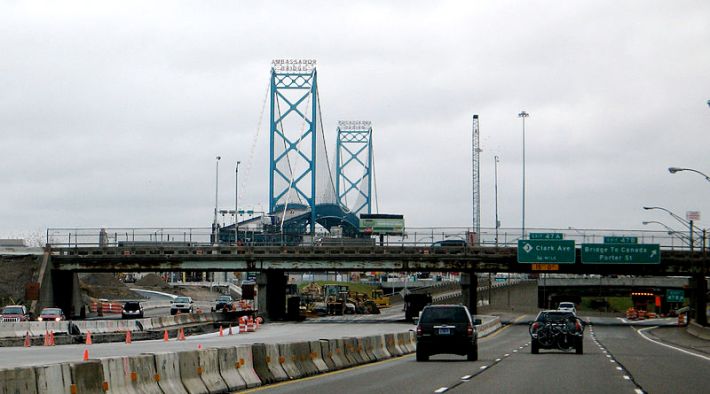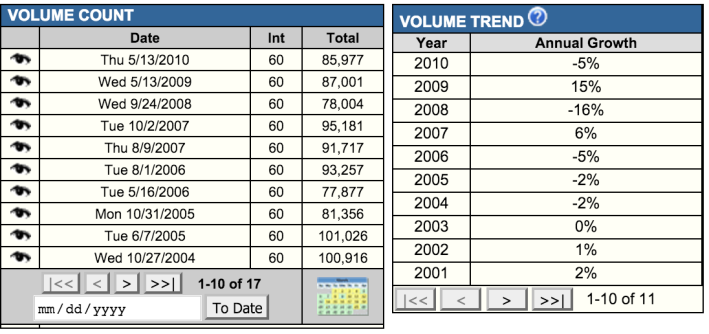
The city of Detroit lost a stunning 25 percent of its population between 2000 and 2010. Even as the city struggles heroically to repair the damage, the Michigan state government is undermining Detroit's fragile recovery.
Leave it to Michigan DOT to come in and make Detroit's problems worse. The Detroit Free Press is reporting that the state DOT wants to pour $1 billion into the widening and reconstruction of 17 miles of I-75 north of the city, serving residents of the region's affluent, racially segregated far northern suburbs.
Everyone agrees the highway needs to get repaired, but widening it is a different matter. A bigger road will siphon residents and economic activity from the city and close-in suburbs. Transit riders, environmental groups, and representatives of inner ring suburbs are protesting that the project will fuel sprawl, squander resources, and lead to more inequality.
Pushing for the project are suburbs that have benefitted from the exodus from Detroit, gaining jobs and businesses even as the regional population has flatlined.
Brooks Patterson, executive of wealthy, suburban Oakland County, is a leading supporter. Patterson, who famously cheered that "your sprawl is my economic development," has referred to I-75 as the county's "Main Street." He told the Free Press the project would boost quality of life in his community by easing congestion and promoting economic development. Officials from the sprawling suburb of Troy are also big supporters.
Since the 1950s, as Detroit's population has declined 60 percent, Oakland County has been a big beneficiary. Its population tripled, leading a Bloomberg headline to declare in 2013: "Detroit is Dead. Long Live Oakland County."
But there is strong resistance from communities that border Detroit, like the walkable, inner-ring suburb of Royal Oak. City Commissioner Kyle DuBuc told the Free Press he's planning to present legislation that would assert Royal Oak's official opposition to the widening. The city will be on the hook for $4.3 million of the project costs, despite the negative impacts widening will have on the community.
DuBuc says the city will consider legal action to stop the widening. "This is the wrong thing to do with our tax dollars," he told the Free Press. "More concrete, more freeways -- this is crazy. We’re going to pay for people to drive past Royal Oak?”
Meanwhile, the mayor of nearby Madison Heights says he's going to ask his city council to pass similar legislation. These communities are caught in a zero sum game, since the Detroit metro area has a stagnant population. If one area grows, another shrinks.
Republican Governor Rick Snyder, who came into office talking a good game about the importance of cities, has done nothing to stop his DOT from further hollowing out the Detroit region with this project.
Michigan DOT spokesperson Rob Morosi has publicly dismissed concerns that the project will induce driving, hurt transit, and waste resources that would be better spent elsewhere.
MDOT originally tried to justify the project by claiming that traffic on the freeway will increase an astronomical 9 percent annually. But traffic on I-75 at Gardenia, in the middle of the project area, declined 15 percent between 2004 and 2010.

MDOT has since said it was mistaken and is now projecting cumulative 10 percent growth over the next 25 years. (Nine percent annual growth would mean a 860 percent cumulative change over the same period.)
Michigan DOT is perfectly comfortable evangelizing for the freeway project, but Morosi draws the line at expressing support for a regional transit levy expected to be on the ballot this year. Voters will be asked to decide on a sales tax measure that would provide relief to Detroiters who've been waiting desperately for better transit. On that issue, Morosi says, "It's not MDOT's job to tell people how to vote."





